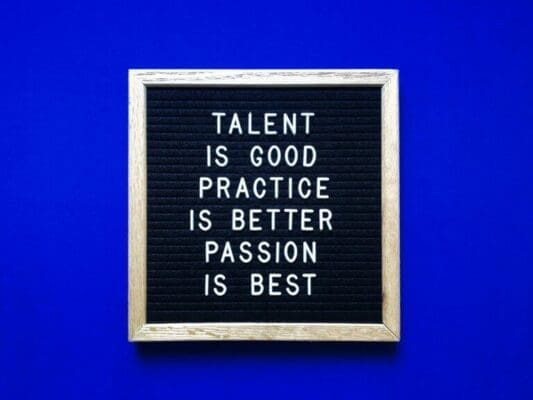Champion!”
Anyway, change is everywhere. It’s happening to us constantly, to our lives, our relationships and our work. Business is always changing, too. Perhaps the most rapidly changing thing is business – the products we consume, the platforms we use, and even the way we shop has changed. Change in business equals change in customer behaviour, which in turn means more change in business… It is a cycle we all know and love. Well, maybe we don’t love it so much. But it’s here to stay.
See, one of the core objectives of a business in 2022 is to keep up with this rapidly changing market. This applies especially to new businesses. If yours is a marketing company, you must always be aware of new social media platforms and ways to share your content. If yours is a clothing company, you must keep up with new trends and be aware of changes in fashion for different regions, age groups and price ranges. There is a lot to be keeping up with. It’s like your business is a living, growing organism. It must adapt. Survival of the fittest has almost no better application than that of a business. That is why we need ‘change champions’. Let me explain.
A Great Change Champion
Not too long ago, I worked in a quaint little pub in my hometown. I spent a year or so there and, upon researching the benefits of change champions, I realised that there was one in that business. The place was run by the franchisee and her assistant manager, Hannah. Kelly, the franchisee, was constantly being fed new information about changes in the business. Especially following (dare I mention…) COVID-19, rapid changes had to be implemented in the rehabilitation of the hospitality industry. Kelly would attend meetings and bring back extensive lists of changes they needed to execute. Hannah became a champion of change. The ten or so front of house staff, including myself, needed to be instructed on what to do differently and how to do it.
We had new menus, new kitchen systems, new bar systems, the lot. All within about three months. It was tough, as a front of house worker, to learn and action all of these changes so quickly. Hannah walked us all through the menu, helped us learn it and tested us so that we knew we could deliver under pressure. She supervised the new kitchen system and made it easy to learn on-the-job.

That Extra Mile…
All these things she did to help facilitate this change were great, but there was one thing she did that went the extra mile. She did not attempt to fit new systems into old places. Instead, she rearranged the kitchen so that the new system made more sense. She re-configured the bar so that the new glasses were easier to identify so everyone got the right pint.
These things sound trivial, but on a bustling Saturday night, they mattered. She facilitated real change. No box-ticking. Actual, actionable change that drove the business forward – she is the best example of a self-appointed change champion I have experienced.
So, What is a Change Champion?
Well, the simple answer is that a change champion (or change ‘agent’) is someone who helps facilitate real change within a business or sector of that business. These people are appointed by bosses and managers because they meet the specific criteria required from a change champion. They lead groups, just like Hannah did, into new systems, new methods, and new ways of thinking. It’s all for the betterment of the business in order to keep up with this ever-changing world.
Sticky Learning ® is 7 times more effective than 1-day training courses. Plus, you will get a Chain of Evidence proving your Return on Investment. Discover soft skills training that changes behaviours long term.

How Do I Become a Great Change Champion?
The ultimate skill that gets people appointed as change agents is, what is known as, ‘subject matter expertise’. Being the expert in your area means that you completely understand that part of the business. Maybe you could be a change champion in marketing. You would have to know the ins, outs and upside-downs of everything marketing within your business. That could be your key to being the facilitator of real change. There are three other key ingredients:
- Excellent interpersonal skills.
- Passion for the company’s future.
- Ability to identify the need for change, proactively.
All three of these things, coupled with being a subject matter expert, will certainly make you a great candidate for championing change.
Excellent Interpersonal Skills

A fantastic skill in any area of business. In fact, a fantastic skill in any area of life. In this application, however, interpersonal skills enable you to communicate change effectively. Communication is the key to real change. To facilitate it, you must get through to a wide range of people all in different areas of the business. To facilitate that, you need people with great people skills. The skills that enable them to effectively enact the changes required in a wide range of people.
Passion for the Company’s Future
As aforementioned, change champions cannot simply view it as a box-ticking exercise. So passion and flair for the work and for the company are what is required to excel at this role. The future of any company is based on change, and how you plan to adapt and move forward. Someone with an understanding of that future and the way in which it needs to be shaped is invaluable. They can effectively enact the change that is needed to push the business, or sector thereof, forward.
Identifying the Need for Change
It’s simple, someone that can see when change is needed. This is a rare skill. It requires a level of ‘seeing the future’ that is difficult to grasp. Look for your Yellow (HBDI) brain thinkers, your big picture see-ers. These are the people that have the ability to see the change that is needed before it is needed. A network of change champions all at the front of the ship, shouting out when there are icebergs, is exactly what you are looking for to man positive change in your business.
How Do I Identify a Great Change Champion?
From the perspective of someone looking to recruit their network of change agents, it’s about spotting those key traits and skills within your workforce. There are three main attributes that you need to be looking out for in your endeavour to find these champions. They are as follows:
1. Someone Who is Overtly Passionate
I would imagine there is a particular person that sprung to mind upon reading that. A genuine passion for working within a specific business is relatively easy to spot. You are looking for someone who cares, someone who goes the extra mile and, above all, someone proactive. Proactiveness is key – they do things out of initiative. Off their own back, in order to better their situation within the business or the business’s situation entirely.

2. A Natural Leader
These champions will need to effectively communicate change and be able to lead a group or section of the business into it. Someone who naturally takes a leading role will lack the obstacle of having to improve their leadership skills. Therefore, a keen eye for leadership is what you need. Who leads well? And who usually wants to lead a group or project? Who seems to have a natural influence on others? These are the things you are after.
3. Someone with Great Interpersonal Skills.
Great communication, like leadership, is required in a similar way. Look for people that are easy to talk to, that articulate their visions well and are able to get points across easily. These are all things you want from your change champion. On the other hand, these interpersonal skills also apply on the micro level. A keen soft skilled person will be able to coach change on an individual basis, too. Helping specific people implement new systems and methods into their work. These skills are a must to effectively communicate your change.
The Two Types of Change Champions
Now, if you are looking to recruit your network, you know how. If you are looking to become part of the network, you know how. For both perspectives of this, these two categories apply. It is easiest to think of them as the micro and macro versions of one another. Whilst one set of champions facilitates change for entire businesses, the other set champions smaller change within sections of the business. Here is what they are:
The Pros
The ‘pros’ are highly trained. For these people, championing change is largely the only thing they do. They are employed to do so because they have a very particular set of skills, skills they have acquired over a long career, skills that make them a nightmare…
Sorry, the Liam Neeson in me took over briefly. Anyway…
They are not a nightmare, they are a dream. Pro change agents facilitate change on a large scale. Their job is to work with large numbers of employees, often multiple business sections, to expedite the transition into new changes. They do this by creating frameworks for change based on extensive research into the future of the business. This helps reformulate the bigger picture, the business objectives and ensures that every working cog of that business is up to speed on exactly what that big picture looks like.

The pros are also experienced. They know how to mentor, how to lead and advance new procedures through the training of their users. These pros work often with the higher-end owners, managers or bosses of the business to create a framework that can then be broken down into a series of smaller frameworks. These smaller objectives can thus be implemented into the business through our next category of change champions; The Locals.
The Locals
The ‘locals’ support the facilitation of those smaller frameworks into their respective sections of the business. They are the ones who action the change, who train and support the training of employees on the required new systems and procedures. The locals have a great understanding of what change must be actioned. They know why these changes are necessary and how to implement them.
These agents are usually not as highly trained in the area. Whilst pro champions will likely not hold a residence or specific job title within the business, the local champions are usually chosen from the employees that stand out in the desired areas. The locals facilitate small-scale change. They will often head up the training of employees on new requirements within one specific section of the company. The marketing team, for example, will have one or two local change champions manning the operation for change training.
The benefit of the locals is that they can work closely with individual colleagues. That micro-scale that I mentioned previously is where they work best. It is much more effective to have people ‘on the ground’ to oversee the training of each and every employee that must be a part of these changes being implemented. That’s where the locals really shine.
So, I Need a Network of These Champions?
Yes, absolutely. Particularly in the current climate of the world, the way things are changing so quickly, so inconsistently, specific people that can effectively facilitate change in your business are a must.
Use standard techniques like; surveys, seminars and interviews to identify your network. I can almost guarantee that there is a plethora of great change agents already existing within your list of employees. Take some time to spot them and see how they would feel about becoming a change champion. It may just be exactly what they have wanted.
Recruiting the pros is a little different. With the concept of change agents becoming increasingly popular, now is the best time to be reaching out to your network and identifying the key facilitators of change. Figure out how you can get these people on board and start implementing positive changes in your business.
It will be infinitely more effective using these specific people than it will to attempt to champion your own change. Identify your change, expand your network and spot the locals that already exist.




